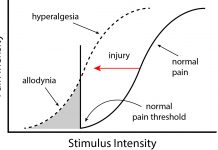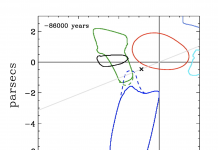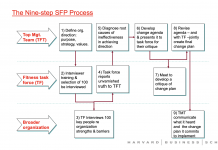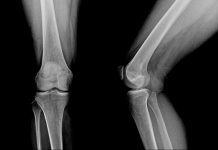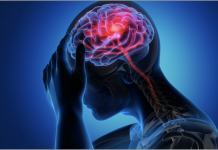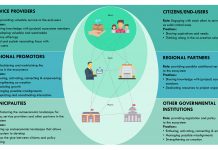Open Access Government produces compelling and informative news, publications, eBooks, and academic research articles for the public and private sector looking at health, diseases & conditions, workplace, research & innovation, digital transformation, government policy, environment, agriculture, energy, transport and more.
Home 2024
Archives
Invasive electrical stimulation for stroke treatment
The CorTec Brain Interchange system is a potential tool to improve motor rehabilitation after stroke (Schuettler, 2023). Here, it is sketched how results from studies of other groups are combined to form CorTec’s vision of a new therapy and how first human data was collected to prove the systems therapy capability.
Permafrost grown: The heterogeneity of permafrost conditions
Melissa Ward Jones, from the University of Alaska Fairbanks, explains the heterogeneity of permafrost conditions and how it can impact agriculture.
Structural biology research and the origins of genetic coding
Charles W. Carter, Jr, Department of Biochemistry and Biophysics, University of North Carolina Chapel Hill, reviews the ways that recent research in Structural Biology, Biochemistry, Molecular Biology, and Phylogenetics have opened the origins of genetic coding to experimental study and their important implications.
Religion and accountability for restorative offender rehabilitation
Offender rehabilitation has different meanings for different people because we may have varying expectations about what rehabilitation actually looks like. Sung Joon Jang and Byron R. Johnson walk us through the role of religion and accountability in restorative rehabilitation.
Time to strengthen and enforce the north american migratory bird treaty act
The number of migratory bird populations is declining; Keith Hobson, professor and research scientist at Environment and Climate Change Canada and Western University, outlines the importance of updating conventions to protect these vulnerable species.
Development of novel therapies for pediatric cancer: Successes and challenges
Peter J. Houghton from Greehey Children’s Cancer Research Institute and Mary-Ann Bjornsti from the University of Alabama discuss some of the key challenges in the development of therapies for pediatric cancer care.
Tackling physical inactivity and a sedentary lifestyle: Two distinct approaches
Being physically inactive and sedentary are two distinct issues that affect older adults. However, each problem necessitates a unique set of solutions; Professor Isabelle J. Dionne from the Université de Sherbrooke tells us more.
Therapeutic potential of the endocannabinoid system to treat chronic pain in inflammatory disease
Pharma researchers Julie Blaising and Philip Smith from F. Hoffmann-La Roche Ltd. discuss the endocannabinoid system as a pathway to treat inflammatory diseases such as Inflammatory Bowel Disease (IBD) and endometriosis.
Astrophysical and planetary sciences: Exploring the local interstellar medium and the next space frontier
Prof Jeffrey L Linsky from the University of Colorado Boulder, sheds light on exploring the next space frontier in this exciting astrophysical and planetary sciences focus.
Flame system: Computerised cognitive assessment for remote brain health monitoring
Monitoring brain health, particularly cognition, in older adults is increasingly recognised as a significant priority for research, healthcare and broader public health. Find out here about the development and validation of the FLAME System, a computerised cognitive assessment for remote brain health monitoring.
Combatting organizational silence: How to have an honest conversation
Hewlett Packard’s Santa Rosa Systems Division was formed to take HP into a new and growing internet market. Yet, two years later, growth and profits were so disappointing that the senior team thought they were six months from being replaced. What saved them? An honest conversation about what was going wrong and overcoming organizational silence.
Medical abrasion phenomenon as a cause of knee osteoarthritis
Professor Shaw-Ruey Lyu from Tzu-Chi University tells us how the discovery of the medial abrasion phenomenon, as a cause of knee osteoarthritis, has changed how it is best treated.
Ensuring the best performance of sensor-driven irrigation systems in vineyards
Professor Pete W. Jacoby, from Washington State University, explains how to ensure the best performance of sensor-driven irrigation systems in vineyards.
A guide for occipital neuralgia patients
Giorgio Pietramaggiori, MD, PhD and Saja Scherer, MD, from the Global Medical Institute, help us to understand occipital neuralgia in this detailed patient guide.
Policy priorities for gender and entrepreneurship
Read here about policy suggestions from an academic-practitioner collaboration for gender and entrepreneurship.
Protecting genetic diversity to benefit nature and society
There are three ways that governments and other conservation actors at all levels can monitor and protect genetic diversity, supporting the attainment of biodiversity goals and targets. But first, what is genetic diversity, and is there potential to safeguard it better?
How Tun-AI technology can be used to estimate tuna biomass
Satlink, a leading buoy manufacturer, has partnered with Komorebi AI researchers to develop Tun-AI, a machine-learning protocol that contextualizes echo-sounder data from buoys to estimate tuna biomass, shaping the future of fishery science.
Inclusive digital rural transformation: Co-developing a digital service marketplace for regional ecosystems
Michel Ehrenhard, Yasin Sahhar, Tina Hormann & Myriam Martin, place the spotlight on inclusive digital rural transformation, in particular, co-developing a digital service marketplace for regional ecosystems.
Digital twins shake up heat exchanger design: Vestas Aircoil and University of Sheffield forge...
Beyond blueprints, beyond prototypes, lies a future where humans and machines design in harmony. Dive into the groundbreaking collaboration between Vestas Aircoil and the University of Sheffield, where digital twins unlock sustainable engineering breakthroughs.
Navigating health autonomy through self-care
Interest in self-care has exploded in recent years, highlighting its crucial role in shaping future healthcare systems. Imperial SCARU’s Dr Austen El-Osta discusses emerging trends, research priorities and self-care policy landscapes, advocating for a global movement towrds accessible and empowered health management.








